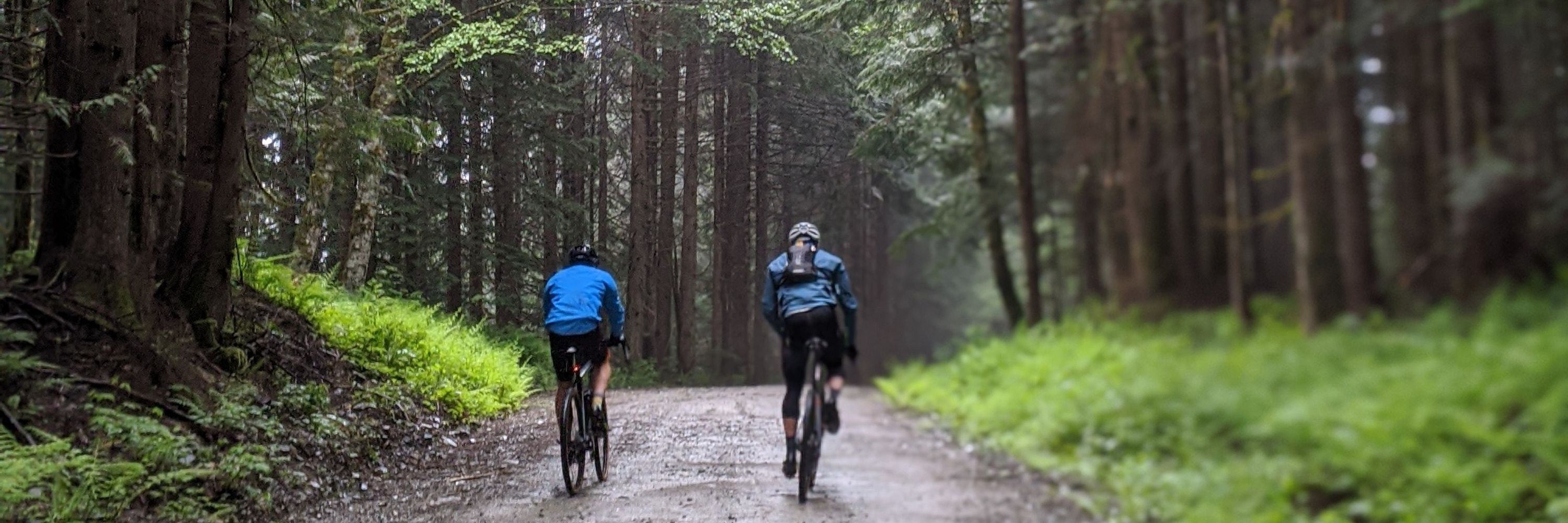
Treat declarative statements as questions?

Review of conservative treatment (CTx) for Flow Limitations in the Iliac Arteries (FLIA, endofibrosis) and proposal of Return to Sport (RTS) guidelines after surgery
Here is what we learned🧵👇/14
(full PDF link at end of thread)
mean(f(Power)⁴)ᐧ²⁵, where f is an exponential decay. It seems to work! But I can't be alone in feeling it seems very "garden of forking paths-ish"
#statssky #bikesky

mean(f(Power)⁴)ᐧ²⁵, where f is an exponential decay. It seems to work! But I can't be alone in feeling it seems very "garden of forking paths-ish"
#statssky #bikesky
Save the plot once 👌
e.g.:
ggplot(...) +
ggview::canvas(width = 220, height = 220*2/3, units = "mm", dpi = 300)
per @nrennie.bsky.social #datavis #rstats
Save the plot once 👌
e.g.:
ggplot(...) +
ggview::canvas(width = 220, height = 220*2/3, units = "mm", dpi = 300)
per @nrennie.bsky.social #datavis #rstats
How do we begin to guess? Start with a prediction interval, not a falsely precise point estimate
Data from Sitko et al 2022 helps as a starting estimate (link below 👇)
Any similar datasets? (particularly for female cyclists?)

How do we begin to guess? Start with a prediction interval, not a falsely precise point estimate
Data from Sitko et al 2022 helps as a starting estimate (link below 👇)
Any similar datasets? (particularly for female cyclists?)

We took a new approach to modeling the power duration curve in cyclists using functional principal component analysis.
We took a new approach to modeling the power duration curve in cyclists using functional principal component analysis.
They have published how they might be using this information (see links below 👇)
From their promotional bit a few minutes ago
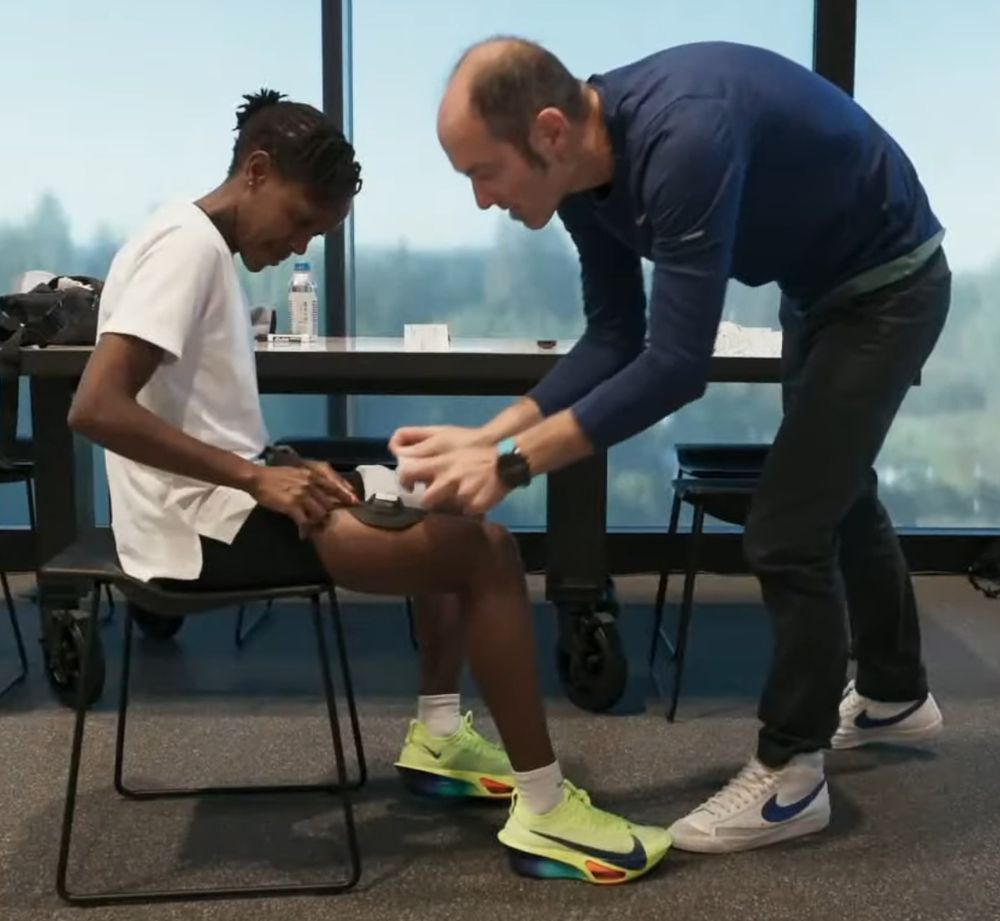
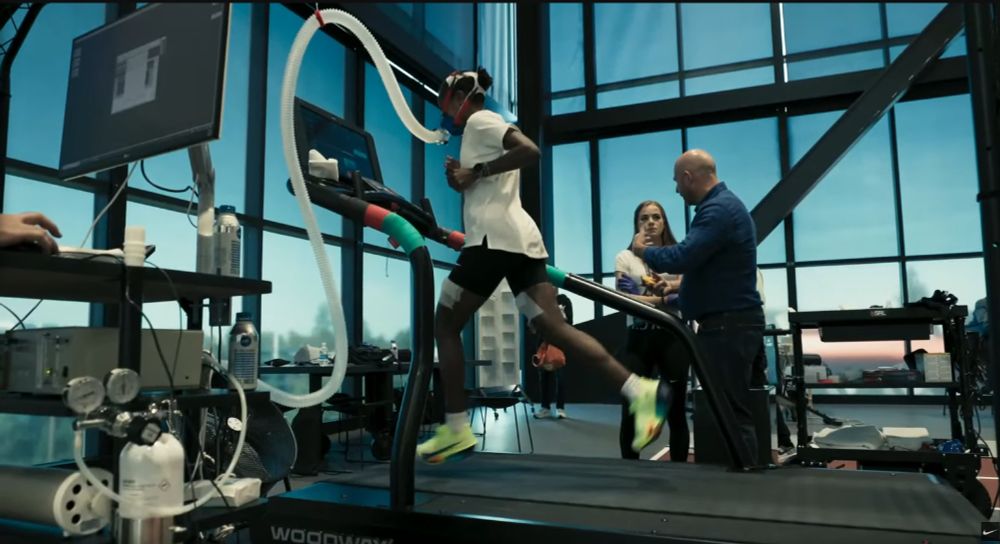
They have published how they might be using this information (see links below 👇)
From their promotional bit a few minutes ago
Mostly by knowing where to find the great published diagnostic images, and adding some knowledge we've gained from my recent PhD work on screening and conservative management👇
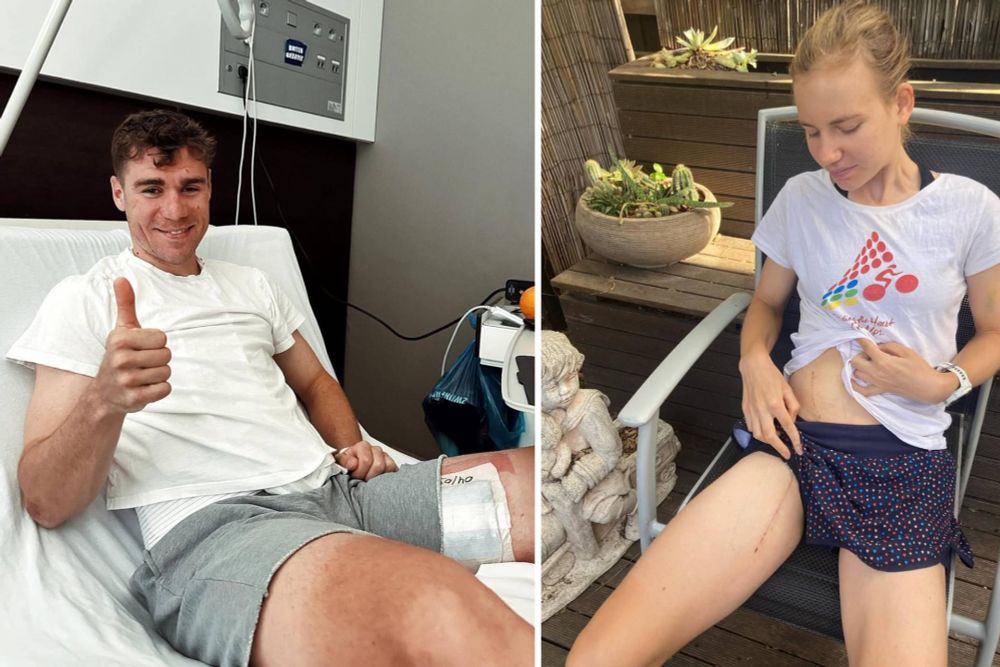
Mostly by knowing where to find the great published diagnostic images, and adding some knowledge we've gained from my recent PhD work on screening and conservative management👇
Mostly by knowing where to find the great published diagnostic images, and adding some knowledge we've gained from my recent PhD work on screening and conservative management👇

Mostly by knowing where to find the great published diagnostic images, and adding some knowledge we've gained from my recent PhD work on screening and conservative management👇

At loads below COT, reps increased exponentially in free-flow conditions, compared to cuff-occluded
At loads above COT, there were no differences between occluded & free-flow 3/
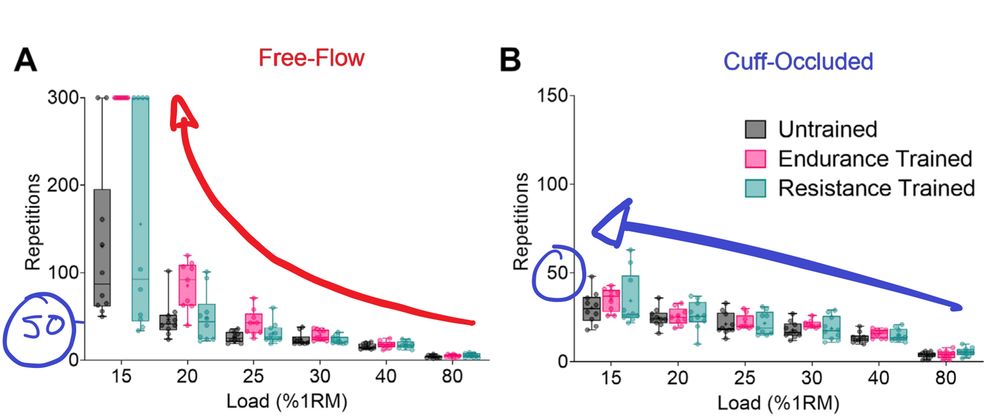
I'd expect it probably is in gastroc at least, based on how mNIRS deoxygenates during incremental running in many athletes 🤔

I'd expect it probably is in gastroc at least, based on how mNIRS deoxygenates during incremental running in many athletes 🤔
As likely are all metabolic “thresholds” 👇
COT is muscle & task-specific. How might this apply in sport? 6/
bsky.app/profile/capt...
It might depend on the critical occluding tension in our muscles 💪🩸
🧵/11👇
A Critical Occluding Tension Phase Transition Occurs Between 30-40% 1RM in Dynamic Knee Extension Exercise
onlinelibrary.wiley.com/doi/10.1111/...
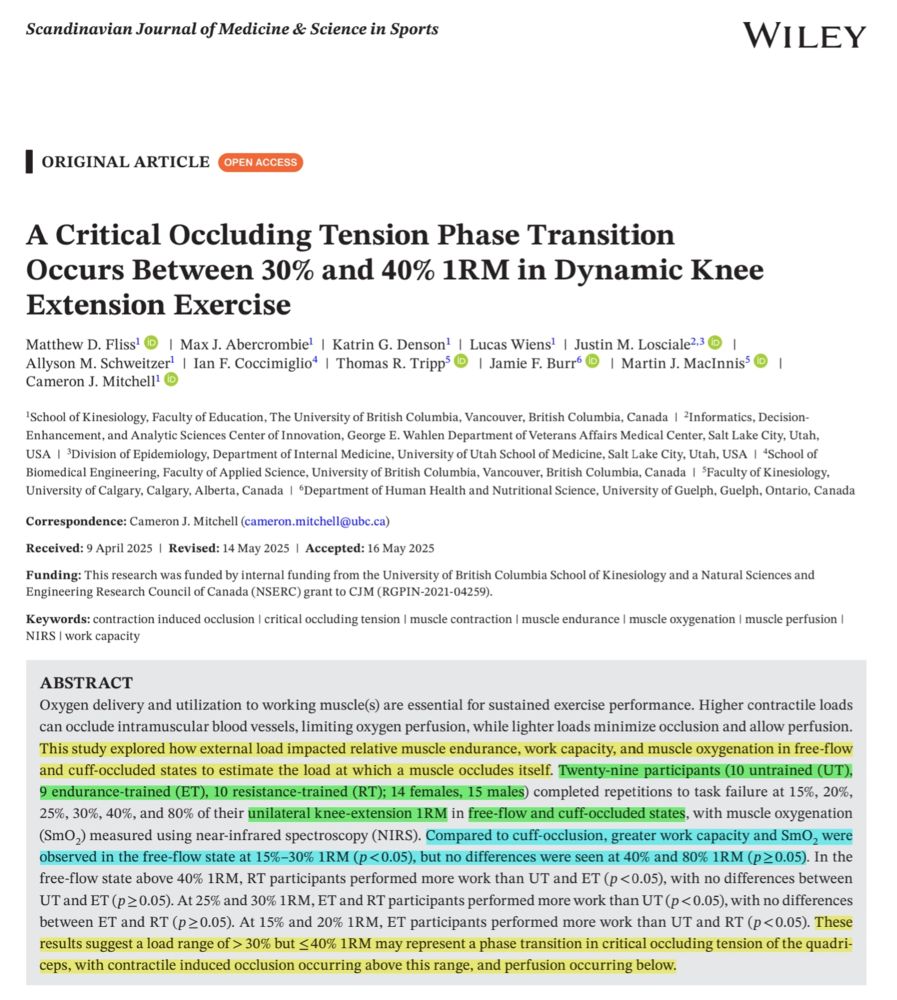
It might depend on the critical occluding tension in our muscles 💪🩸
🧵/11👇
A Critical Occluding Tension Phase Transition Occurs Between 30-40% 1RM in Dynamic Knee Extension Exercise
onlinelibrary.wiley.com/doi/10.1111/...
mNIRS SmO2 on left. IMP on right. Look closely! 👀
@matthewfliss.bsky.social PhD project
#SportScience #NIRS #ExercisePhysiology
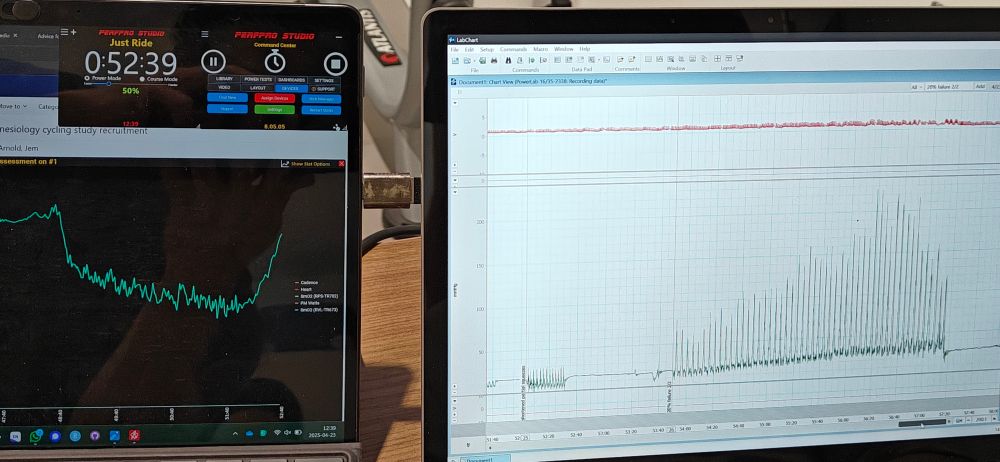
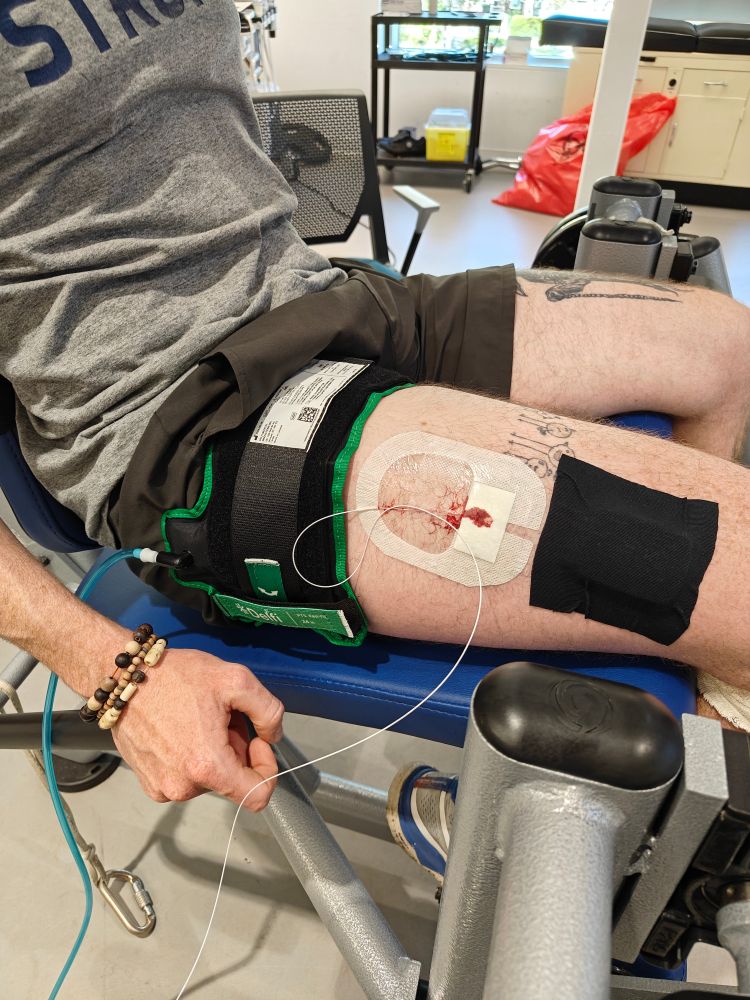
mNIRS SmO2 on left. IMP on right. Look closely! 👀
@matthewfliss.bsky.social PhD project
#SportScience #NIRS #ExercisePhysiology
Thanks to IJSPP for this editorial on collaboration in sport & exercise science
I hope we will continue to share knowledge with such generous and excellent colleagues in science
journals.humankinetics.com/view/journal...
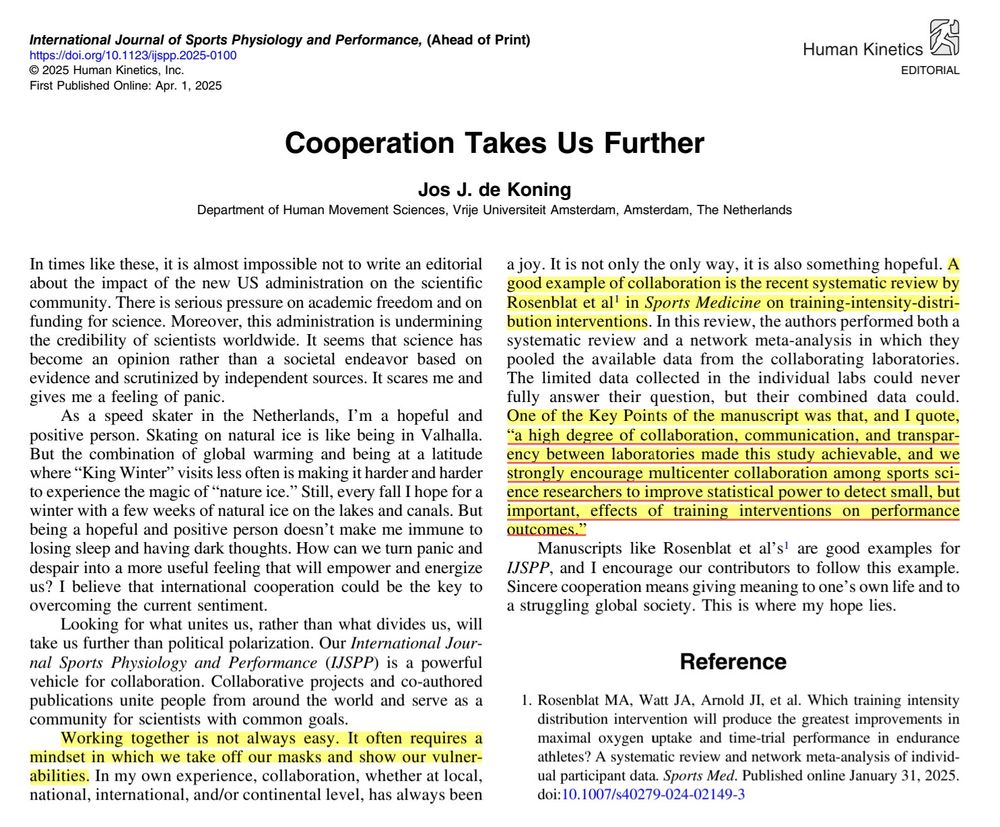
Thanks to IJSPP for this editorial on collaboration in sport & exercise science
I hope we will continue to share knowledge with such generous and excellent colleagues in science
journals.humankinetics.com/view/journal...
Thanks to IJSPP for this editorial on collaboration in sport & exercise science
I hope we will continue to share knowledge with such generous and excellent colleagues in science
journals.humankinetics.com/view/journal...

Thanks to IJSPP for this editorial on collaboration in sport & exercise science
I hope we will continue to share knowledge with such generous and excellent colleagues in science
journals.humankinetics.com/view/journal...

Bilateral flow limitations are thought to be much less common in cyclists (<15%) but we think there may be higher prevalence with the "unaffected" leg still showing some functional limitations
👉https://www.mdpi.com/2077-0383/11/24/7462
Bilateral flow limitations are thought to be much less common in cyclists (<15%) but we think there may be higher prevalence with the "unaffected" leg still showing some functional limitations
👉https://www.mdpi.com/2077-0383/11/24/7462
The challenge is how "asymmetric" the cost function should be so it allows for "gaps" (i.e. sharp declines) in the mean-max data but still stays close to the data.

The challenge is how "asymmetric" the cost function should be so it allows for "gaps" (i.e. sharp declines) in the mean-max data but still stays close to the data.
As expected, LTs != mNIRS-BPs for individual athletes.
We need more longitudinal mNIRS research like this! But where are the performance outcomes? 👀

As expected, LTs != mNIRS-BPs for individual athletes.
We need more longitudinal mNIRS research like this! But where are the performance outcomes? 👀
I've really liked the Xert model better than classic CP & W'. Another one to look forward to for my weekend reading list!

I've really liked the Xert model better than classic CP & W'. Another one to look forward to for my weekend reading list!

No! 😮
In this dataset, +1% improvement in VO2max was associated with a negligible +0.04% change in TT performance. But why? 1/15🧵
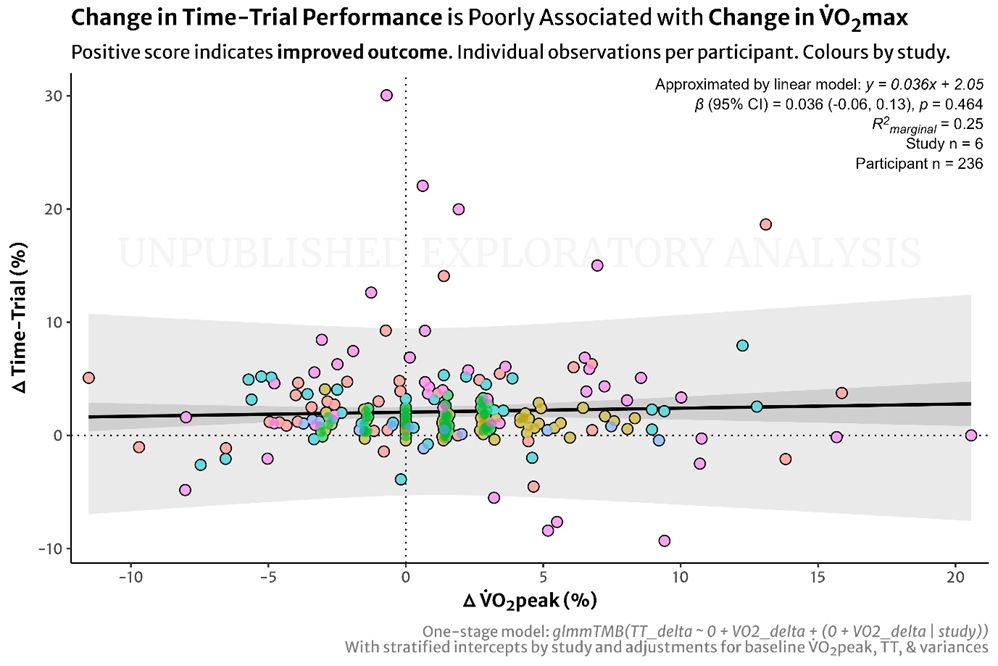
No! 😮
In this dataset, +1% improvement in VO2max was associated with a negligible +0.04% change in TT performance. But why? 1/15🧵

